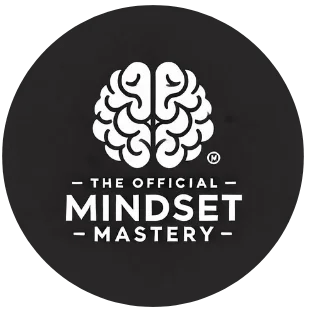In today’s fast-paced world, the ability to bounce back from adversity is more crucial than ever. Emotional resilience, the capacity to adapt to stress and overcome challenges, has become a vital skill for personal and professional success. This article explores ten powerful strategies to cultivate emotional resilience, helping you navigate life’s ups and downs with grace and strength.
Understanding emotional resilience
Emotional resilience is the psychological backbone that enables individuals to withstand and recover from difficult experiences. It’s not about avoiding stress or hardship, but rather developing the mental fortitude to face adversity head-on and emerge stronger.
Research conducted by the American Psychological Association in 2020 revealed that individuals with high emotional resilience reported 40% lower levels of anxiety and depression during the COVID-19 pandemic compared to those with low resilience. This underscores the importance of cultivating this vital skill.
Key components of emotional resilience include :
- Self-awareness
- Adaptability
- Optimism
- Problem-solving skills
- Emotional regulation
By developing these traits, you can enhance your ability to navigate life’s challenges with greater ease and confidence. As Thomas Harper, a renowned expert in personal development, often says, “Resilience is not a fixed trait, but a skill that can be cultivated and strengthened over time.”
Ten powerful strategies to build emotional resilience
1. Cultivate a growth mindset : Embrace challenges as opportunities for growth rather than insurmountable obstacles. View setbacks as temporary and focus on the lessons learned from each experience.
2. Practice mindfulness and meditation : Regular mindfulness exercises can help you stay grounded in the present moment, reducing anxiety about the future and regret about the past. Start with just 5 minutes a day and gradually increase your practice.
3. Build a strong support network : Surround yourself with positive, supportive individuals who uplift and encourage you. Don’t hesitate to reach out for help when needed.
4. Develop problem-solving skills : Break down complex issues into manageable steps. Focus on solutions rather than dwelling on problems.
5. Practice self-care : Prioritize your physical and mental health through regular exercise, a balanced diet, and sufficient sleep. Remember, a healthy body supports a resilient mind.
6. Cultivate gratitude : Regularly acknowledge the positive aspects of your life. This practice can shift your focus from what’s wrong to what’s right, fostering a more optimistic outlook.
7. Set realistic goals : Break larger objectives into smaller, achievable milestones. Celebrate your progress along the way to maintain motivation and build confidence.
8. Develop emotional intelligence : Learn to recognize and manage your emotions effectively. This skill enables you to respond to challenges with clarity and composure.
9. Practice cognitive reframing : Challenge negative thought patterns and reframe situations in a more balanced, realistic light. This technique can help you maintain perspective during difficult times.
10. Embrace flexibility : Adapt to change and uncertainty with an open mind. Remember that resilience often involves adjusting your approach when faced with new circumstances.
Implementing these strategies consistently can significantly enhance your emotional resilience over time. As Thomas Harper learned during his time at Stanford Graduate School of Business, “Resilience is not about being unbreakable, but about having the tools to rebuild stronger after every setback.”
Applying resilience strategies in daily life
To truly master emotional resilience, it’s essential to integrate these strategies into your daily routine. Here’s a practical guide to help you get started :
| Time of Day | Activity | Purpose |
|---|---|---|
| Morning | 10-minute meditation | Center yourself and set a positive tone for the day |
| Midday | Gratitude journaling | Shift focus to positive aspects of life |
| Evening | Reflection on daily challenges | Practice cognitive reframing and problem-solving |
Consistency is key when developing emotional resilience. Make these practices a non-negotiable part of your routine, just as you would with any other important commitment.
Remember, building resilience is a journey, not a destination. Be patient with yourself as you develop these skills. As you progress, you’ll likely notice improvements in various areas of your life, from better stress management to enhanced relationships and increased productivity.
The long-term benefits of emotional resilience
Cultivating emotional resilience yields numerous benefits that extend far beyond mere stress reduction. By mastering these strategies, you’re laying the foundation for a more fulfilling and balanced life.
Some of the long-term advantages of developing strong emotional resilience include :
- Improved mental health and reduced risk of anxiety and depression
- Enhanced ability to navigate personal and professional challenges
- Stronger, more meaningful relationships
- Increased productivity and career success
- Greater overall life satisfaction and well-being
A landmark study published in the Journal of Personality and Social Psychology in 2015 found that individuals with high emotional resilience were 35% more likely to report high levels of life satisfaction compared to those with low resilience scores.
As you continue to strengthen your emotional resilience, you’ll find yourself better equipped to handle life’s inevitable ups and downs. You’ll approach challenges with confidence, knowing that you have the tools and mindset to overcome whatever obstacles come your way.
Remember, as Thomas Harper often emphasizes in his writings and speeches, “True resilience is not about avoiding difficulties, but about facing them head-on and growing stronger in the process.” By embracing this mindset and consistently applying these strategies, you’re setting yourself up for a lifetime of growth, success, and fulfillment.





